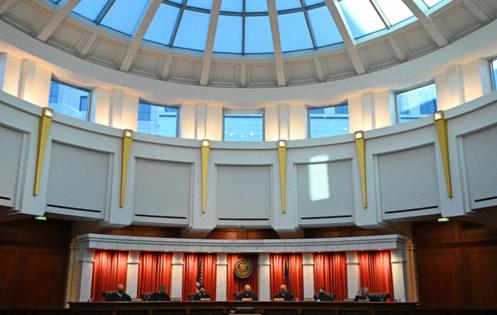Amendment H would create independent oversight for Colorado judges
Published in News & Features
Colorado lawmakers last year voted to reform the way Colorado’s judges are investigated and disciplined for professional misconduct on the bench — but now voters must give final approval for the reforms to take effect.
The proposed reforms require changing the state’s constitution, and that has been proposed to voters through Amendment H on the ballot for the November election. To pass, Amendment H needs 55% support.
The bipartisan push for reform came in the wake of a judicial scandal that revealed significant concerns about the existing discipline process for judges, which was criticized for being secretive and insular.
What would Amendment H do if passed?
The amendment would strip the Colorado Supreme Court of its power to suspend, publicly discipline or remove a judge from the bench. It would give that power to a newly created independent adjudicative board made up of citizens, lawyers and judges, with some of them appointed by the governor and others by the Supreme Court.
The state Supreme Court justices would only hear appeals of disciplinary decisions if the independent board made an error of fact or law.
The amendment would also allow more information to be shared publicly in the historically very secretive discipline process.
What would it cost?
The change would cost about $50,000 annually for training of new members of the independent board, according to the state’s Blue Book voter guide.
What do supporters say?
Proponents say the changes would end the practice of judges policing themselves almost exclusively behind closed doors, bring transparency to the discipline process and improve public confidence in the court system. The reform effort has wide bipartisan support among state lawmakers.
What do opponents say?
Opponents say the reforms are unnecessary and that the current system for judicial discipline is sufficient to ensure judges are held accountable for misconduct. Judges are uniquely qualified to judge each other’s conduct on the bench because they hold the same roles, opponents argue.
©2024 MediaNews Group, Inc. Visit at denverpost.com. Distributed by Tribune Content Agency, LLC.







Comments